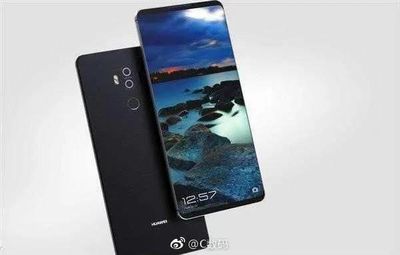On Saturday, Chinese mobile maker Huawei unveiled its first artificial intelligence smartphone chipset, which it hopes will lure customers away from Apple's upcoming range of new iPhones and towards the Asian company's "most powerful handset yet", the Mate 10, which is set to debut next month (via Nikkei Asian Review).
Huawei touted the Kirin 970 AI mobile chipset's built-in "neural processing unit" at the IFA consumer electronics trade show in Berlin, claiming that the technology is "20 times faster" than a traditional processor.

"The Kirin 970 is faster, better and more secure than anything else available [in the market]. This is the latest technology and it is the first chip to have a neural processing unit inside, which is 20 times faster than a central processing unit," said Richard Yu, chief of Huawei's consumer business group.
"It is a major breakthrough for Huawei. We will enable the first use of AI technology in mobile apps, and provide consumers with a never-before-seen AI experience right in the palm of their hands," he added.
The world's third largest smartphone maker claimed that mobile devices powered by the Kirin 970 will be able to "truly know and understand their users", by supporting real-time image recognition, voice interaction, and intelligent photography with ease.
"Compared with Samsung and Apple, we have advantages," Yu said in an interview with Reuters. "Users are in for much faster (feature) performance, longer battery life and more compact design."
According to Nikkei, the Kirin 970 integrates 5.5 billion transistors in a single square centimeter about the size of a thumbnail, which includes an octa-core central processing unit, a 12-core graphics processing unit, a dual-image signal processor, a high-speed 1.2Gbps Cat.18 modem, and AI mobile computing architecture.
The Kirin 970 is said to be based on the same 10-nanometer technology as Apple's existing A10X Fusion processor and the A11 processor that will power its new iPhone range, set to debut this month. The A10X powers Apple's latest 10.5-inch and 12.9-inch iPad Pro tablets, making them the first consumer devices to feature a chip built on Taiwan Semiconductor Manufacturing Company's advanced 10-nanometer FinFET technology.
Mark Li, an analyst at Sanford C. Bernstein, claimed that the new chip powering Huawei's Mate 10 may be better than the chips for the new iPhone range. "The new Huawei chip can be 10 times as powerful as an average smartphone chip, and also more energy efficient, when it comes to handling AI-related functions such as image and voice recognition," Li said. But he added that the popularity of the chip would depend on whether Huawei is able exploit its power in a killer AI app.
The Mate 10 is said to be a bezel-less all-screen handset with a 6-inch, 2:1 display and a 2,160 x 1,080 resolution. Like Apple's so-called "iPhone 8", the Mate 10 is also expected to feature some form of facial recognition and improved cameras.
Huawei aims to become the world's largest smartphone maker by 2021, ahead of both Apple and Samsung, and the latest market share data suggests it is making headway towards that goal.
The company shipped an estimated 38.4 million smartphones in the June quarter, a 20 percent increase over a year ago, according to research firm Strategy Analytics. By comparison, Apple reported it sold 41 million iPhones in the same period, up nearly 2 percent from 40.4 million iPhones in the year-ago quarter.
























Top Rated Comments
As for the "20X faster", that sounds like pure ********. Let's see the benchmark scores
[B]GeekBench 3 Benchmark Comparison[/B]
Single-core Score
[LIST=1]
* Apple A10 : 3510
* Exynos 8890 : 2041
* Kirin 960 : 1989
* Snapdragon 820 : 1845
* Snapdragon 821 : 1827
[doublepost=1504444961][/doublepost]It's pretty insane to think that Apple is effectively more than a year ahead in terms of soc performance.